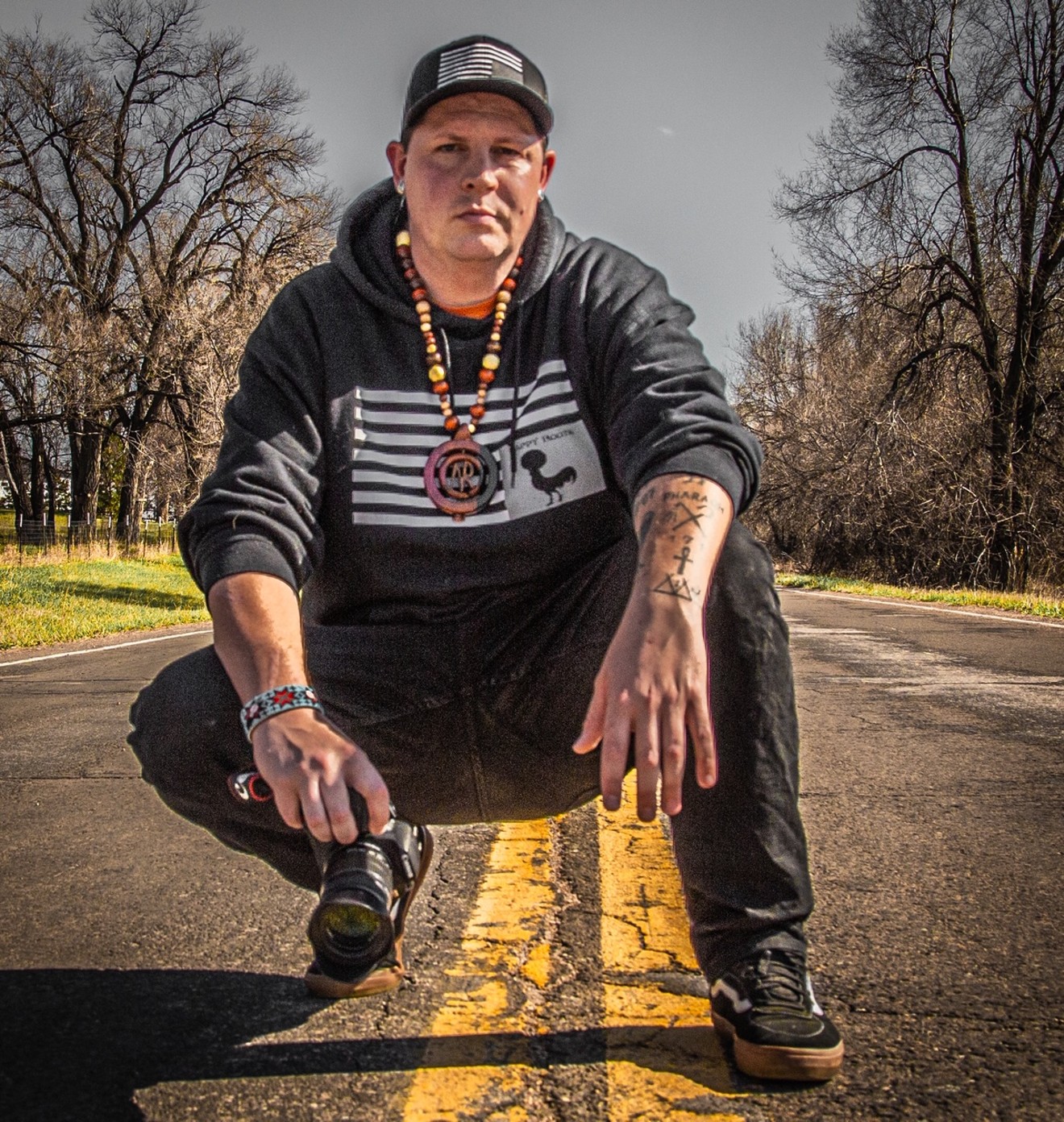He’s being honored by the Smithsonian Institution with a cultural recognition award for being the first Indigenous person and member of the American Indian Movement to be nominated for multiple Smithsonian and Grammy awards.
“With all that has been happening this year and over many lifetimes of how America was stolen [and] the social injustices happening today, we really wanted to bring to light and recognize him as part of AIM,” says Linda Porter, senior project contest manager and judge for the Smithsonian.
It’s a big deal, and Pekara is humbled and thankful for the recognition. But he’s not excited because the award will be good for his career. “I don’t want it to be about me,” says Pekara, who is part of the Choctaw and Tsalagi nations. “I really want it to bring recognition to the culture, that the people are still here. We’re successful. There’s a lot we have to say.”
Pekara started shooting photos in Fort Collins concert venues a few years ago, focusing his talents on indie hip-hop acts like Hieroglyphics. He turned down a touring gig with that group to care for his mother, who is struggling with cancer. (She is currently doing well, he says.) Eventually, Kentucky-born hip-hop quartet Nappy Roots took Pekara on as their staff photographer, and he followed the group to its shows and public appearances. He has also shot photos for Washington, D.C., rapper Wale.
Pekara, who also goes by the moniker Pharaoh 171, scored a Grammy nomination last year for best album package for his work with Nappy Roots. That nomination was also tied to the Smithsonian, which displays Pekara’s work on its website; he says the organization is trying to expand the content of its photography exhibits to be more culturally inclusive.
The cultural recognition honor is likely to be awarded sometime in November, he says. He appreciates that it will acknowledge his membership in AIM, noting that the group is "a huge part of my life.”
Pekara wants to bring more recognition to the unspeakable hardships inflicted upon Indigenous people over the past few centuries, hardships that continue today. He gives as an example the Navajo Nation, which has been particularly hard hit by the COVID-19 pandemic, as many of its residents live without running water. The helicopter pad in front of an Albuquerque hospital was active day and night earlier this year as Navajo citizens were flown in for treatment.
“I hope to shed light on the distress our culture goes through, the forgotten-ness of us, but also the success that Indigenous people have had, whether it be schooling or successful businesses,” he says. “I hope to bring awareness to everything. We are still here, no matter how much history wants to act like we are not.”
He notes that Indigenous history has been neglected in many school districts, and he's thankful that his mother and grandmother know their history and maintain their traditions. He ran into an old high school teacher recently who told him that the district was striking most of the Indigenous history from its curriculum, going straight from Christopher Columbus to slavery. It was shocking to hear. Pekara believes that Indigenous people often garner pity from the nation at large, becoming little more than mascots for sports teams or, worse, invisible. He wants to change that perception.
“We’re still here, to begin with,” he says. “We were supposed to be killed in the boarding schools. But then there are people like Wes Studi, who’s [winning] Academy Awards.”

Pekara took this photo of Joslyn Running Wolf, who is Kiowa, Arapahoe and Cheyenne, as part of his senior photo project. The image is nominated for a Smithsonian award.
Joe Pekara
COVID-19 put an end to any touring plans for Pekara this year, and he’s used his free time to demonstrate and march in the Black Lives Matter protests over the death of George Floyd. Pekara wanted to bring to the movement recognition of the struggles faced by Indigenous people, who have been fighting for equality since colonizers first landed in North America more than 500 years ago.
“I go to marches,” he says. “I go to protests. I try to travel as much as I can across the country to really represent the movement.”
Pekara is still getting paid for tour photos he’s not taking, so he has spent a lot of his summer taking pro bono senior photos for high school kids and recent college graduates. He’s flown to several states to take photos. It’s a way for him to give back to the community and a way to make 2020, such a lousy year in general, seem a little less so for young people.
“It was for families who just couldn’t afford senior photos,” he says. “Photographers can charge 400 bucks to do whatever they want. I just wanted to give memories back that were more positive than remembering your year ended with COVID.”











